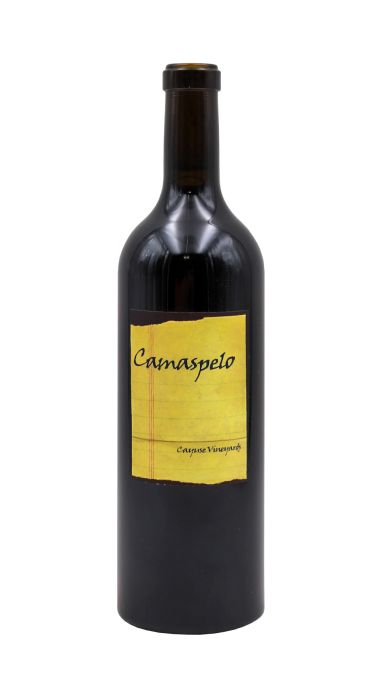Need Help Finding the right wine?
Your personal wine consultant will assist you with buying, managing your collection, investing in wine, entertaining and more.
By continuing, you agree to our privacy policy, consent to cookies, and confirm you are 21 or older.
I have read and agree to the Privacy Policy and Terms of Service.
YOU MUST BE 21 OR OLDER TO CONTINUE
NYC, Long Island and The Hamptons Receive Free Delivery on Orders $300+
Cool Wine Shippers Now Available.
Checkout using your account
Checkout as a new customer
Creating an account has many benefits:

2004 Cayuse Camaspelo
94 WE
Wine Enthusiast | 94 WE
| Type of Wine | Washington Red |
|---|---|
| Varietal |
Proprietary Blend
: Proprietary Blend is a general term used to indicate that a wine is comprised of multiple grape varietals which are either “proprietary” to the winery or is blended and does not meet the required maximum or minimum percentage of a particular varietal. This also is the case for the grape’s place of origin, especially for region, appellation or vineyard designated wines. There are endless examples of blended wines which are labeled as “Proprietary Blend” and in conjunction with each region’s stipulated wine laws and regulations makes for a vast blanket for wines to fall into. Perhaps the simplest example is California; if a wine is to be labeled as Napa Valley Cabernet Sauvignon, it is required to have at least 75% of the varietal (Cabernet Sauvignon) and 85% of the fruit must be cultivated from the Napa Valley wine district. If the wine does not meet the requirements, it is then labeled as Proprietary Blend. |
| Country |
US
: As one of the most prolific and innovative wine regions in the world, America is a joy to explore. Most wine connoisseurs will agree that the nation's finest and most compelling wines are being produced today, which means that we have front-row seats to one of the most inspirational stories in wine history. While other regions tend to focus on specific wine styles and have somewhat strict rules as to which varietals you could grow, areas like California have few such restrictions in place. As a result, creative visionaries behind America's most reputable estates have been able to develop compelling, unique, and innovative styles, with a level of terroir expression that rivals even France's largest giants. |
| Region |
Washington
: While California definitely owns the spotlight when it comes to excellent American wines, Washington winemakers should certainly not be underestimated. While their traditional focus was set firmly on refreshing, illustrious white wines, they've adopted French red varietals like Merlot and Cabernet Sauvignon. Since then, they've been achieving excellence in both categories and can compete with the world's most prestigious viticultural titans. Flavor-wise, you can expect a healthy amount of variety when it comes to Washington's finest wines. From acidic and fruity bottles that can shake you up from even the deepest slumber or sadness to rich and ripe powerhouses that command the respect of everyone in the room after as much as a single whiff. Juicy raspberries that gently tickle your tongue, deep and noble blackberries, intense cherries and earthen oak - these are the flavors that characterize this region, despite the presence of an entire orchestral symphony of other aromatic notes. A sampling of fine wine from Washington is a lot like being seduced, so why not uncork one of these bottles for a potential or existing partner? With a drink of this quality, those romantic sparks will turn into a fireworks display, as your emotions are laid bare and intensified, and you make a connection that can last a lifetime. |
| Subregion | Columbia Valley |
| Appellation | Walla Walla |
Need Help Finding the right wine?
Your personal wine consultant will assist you with buying, managing your collection, investing in wine, entertaining and more.